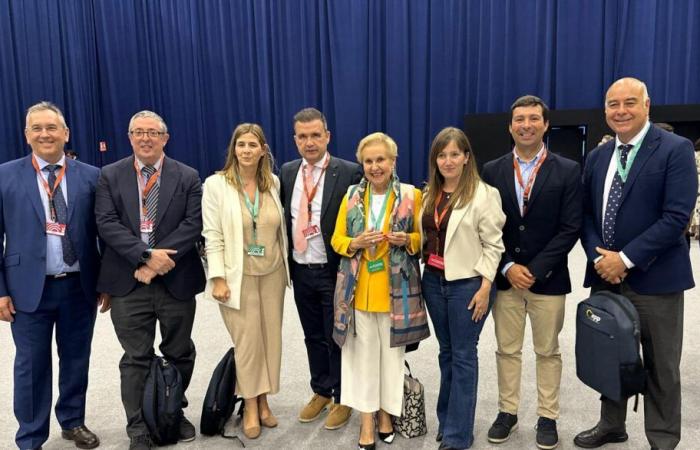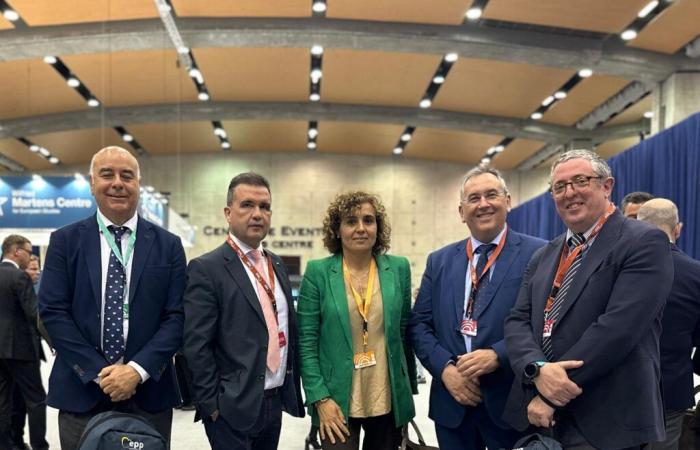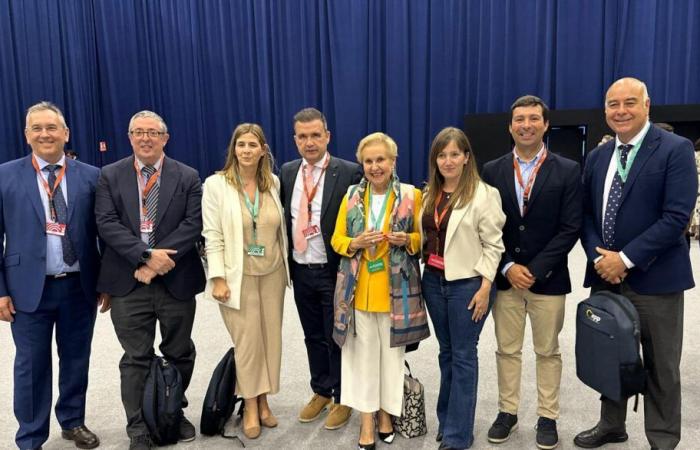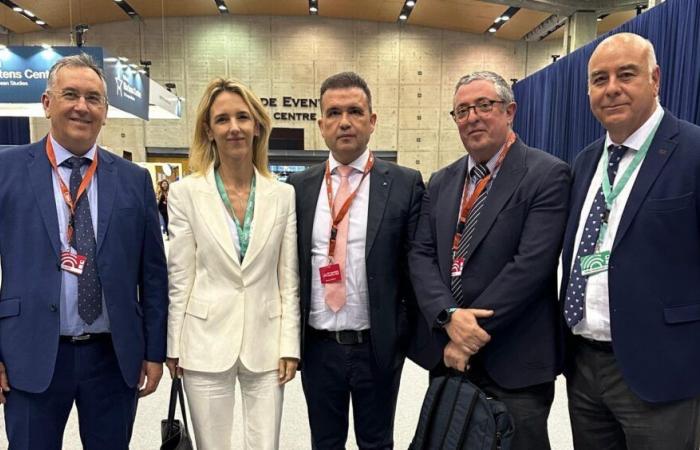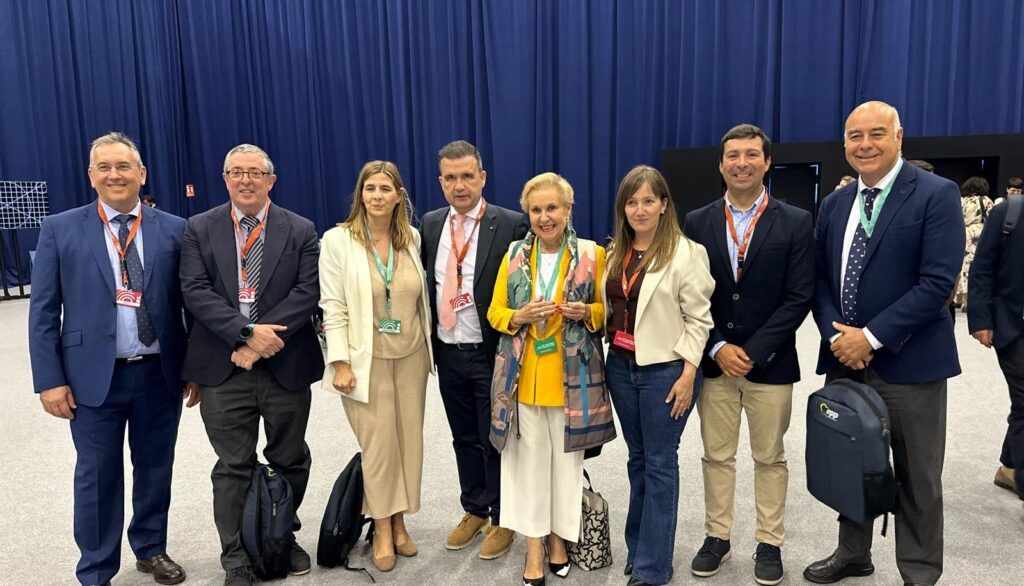

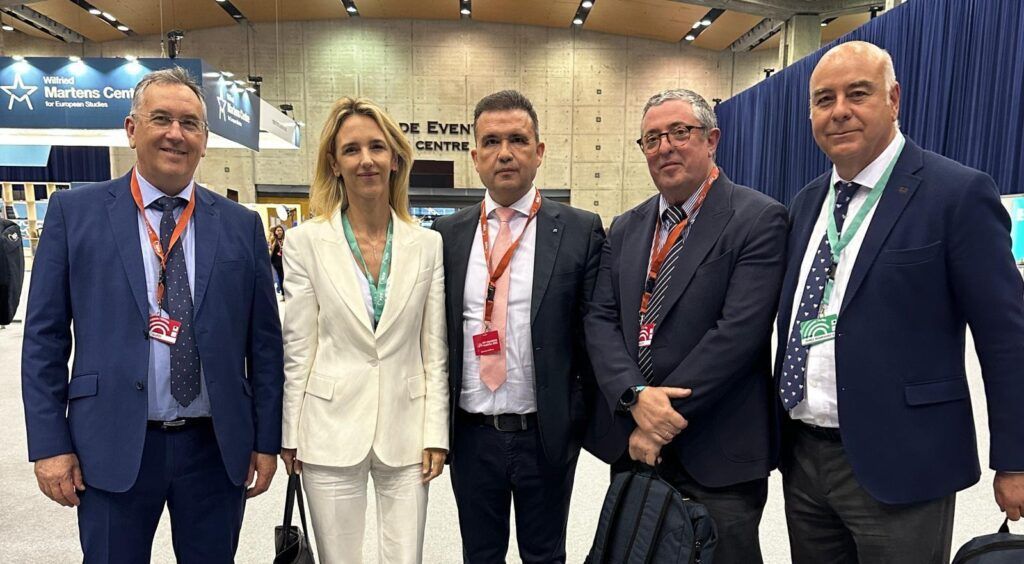



CEAT participates in the summit of the European Popular Party and reinforces its commitment to a Europe of workers and entrepreneurs
The entity consolidates its role as a key interlocutor in the European Social Dialogue and celebrates the agreements reached to promote entrepreneurship, administrative simplification and social economy in the EU
Valencia, May 1, 2025. The Spanish Center for Workers Affairs (CEAT) has actively participated in the European Summit of the Popular Party (EPP) held on April 29 and 30 in Valencia, consolidating itself as one of the most influential civic and professional organizations in the field of autonomous work, decent employment and social economy.
An official CEAT delegation, headed by its president and spokesman, David Cervera, has been present in plenary sessions, bilateral meetings and thematic forums that have brought together political leaders, representatives of social entities, experts in labor and business policies from all over Europe.
The Summit is part of a key moment for the future of the European Union, a few months after the elections to the European Parliament, and has served to design proposals and strategies that will have a direct impact on the work and productive fabric of member countries.
CEAT: an essential voice in social Europe
During his speech, CEAT expressed his firm commitment to the construction of a Europe that bets on the welfare of the worker, the promotion of sustainable autonomous employment and the modernization of the European labor model:
“We have been heard, we have shared proposals with entities from Germany, Italy, France or Poland, and we have made clear our ability to influence political agendas through social dialogue. CEAT is called to lead the debate about the future of work from Spain and with a European vision,” he added.
CEAT celebrates that the European Summit of the Popular Party has crystallized in a series of key agreements for the collective of self -employed workers, vulnerable employees and professionals of strategic sectors. Among the acquired commitments, they stand out:
• Reduction of bureaucracy and simplification of labor and fiscal procedures for freelancers and micropymes, with the creation of a single European digital window.
• Launch of a European young and autonomous entrepreneurship fund, aimed at facilitating access to credit, training and professional accompaniment.
• Impulse to the digital transformation of small economic activities with harmonized tax incentives between the Member States.
• Specific policy for the rural and interior worker, with direct aid to professional activity in unpopulated areas.
• Advance in gender equality in self -employment and self -employment, with specific European plans for entrepreneurs.
“Europe cannot continue legislating their backs to those who make their economy possible. With these agreements, it is recognized that self -employed, small businessmen and precarious workers are central actors of the European model,” said one of the representatives of the organization.
The presence of CEAT at this summit not only responds to an exercise of institutional representation, but to the firm will of this entity to be a strategic actor in the design of European policies from the perspective of decent work, responsible entrepreneurship and social justice.
“We are going to consolidate an interlocution network with other European organizations to coordinate proposals, align claims and work from the base. Ceat is not an showcase entity: it is a living, committed and useful organization for those who need it most,” he added.
The choice of Valencia as the headquarters of this summit has been valued very positively by CEAT, which considers the city an example of dynamism, pluralism and openness to the European debate. The entity appreciates the warm reception and highlights the role of the Valencian Community as a privileged space to think about the future of European work and public policies.

